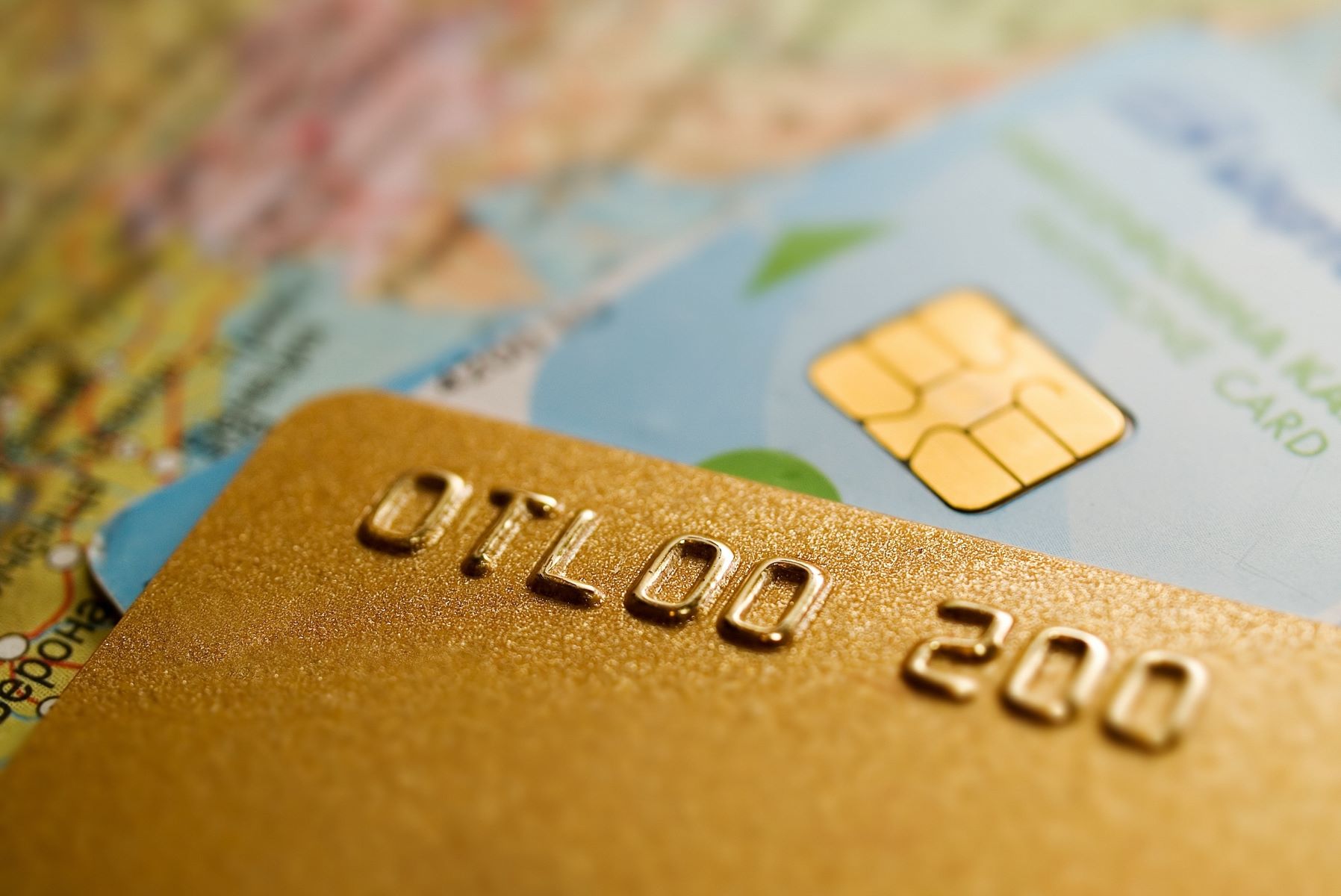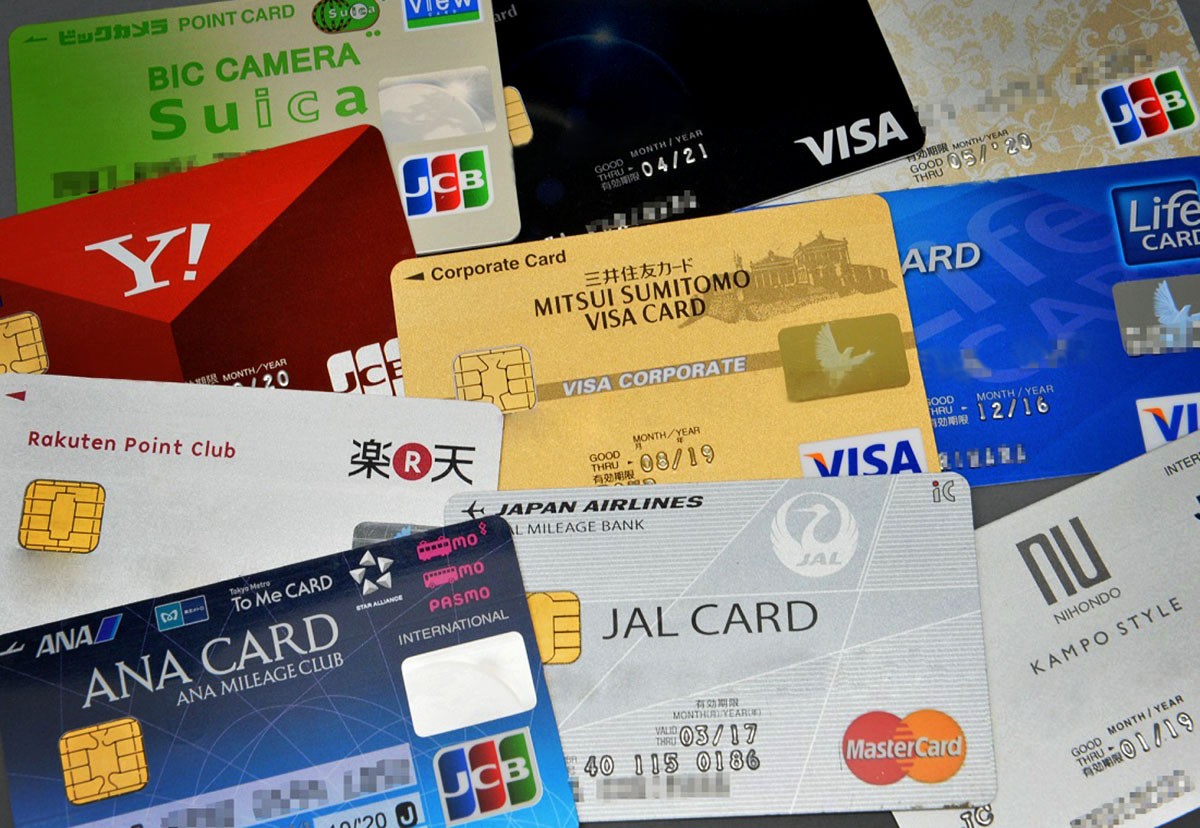Home>Finance>How To Get A Credit Card As An International Student


Finance
How To Get A Credit Card As An International Student
Modified: December 30, 2023
Learn how international students can easily obtain a credit card. Discover the best financial options and start building your credit history today.
(Many of the links in this article redirect to a specific reviewed product. Your purchase of these products through affiliate links helps to generate commission for LiveWell, at no extra cost. Learn more)
Table of Contents
- Introduction
- Understanding Credit Cards for International Students
- Eligibility Requirements for International Students
- Documents Needed to Apply for a Credit Card
- Building Credit History as an International Student
- Choosing the Right Credit Card
- Applying for a Credit Card as an International Student
- Tips for Using a Credit Card Wisely
- Building Credit Score as an International Student
- Frequently Asked Questions
- Conclusion
Introduction
Welcome to the world of finance as an international student! As you begin your journey in a new country, understanding how to navigate the financial system is crucial. One essential aspect is obtaining a credit card that will not only provide you with convenience but also help you establish a credit history.
A credit card can be a powerful financial tool, offering you the flexibility to make purchases, access cash advances, and build a credit score. However, as an international student, you may face unique challenges in getting approved for a credit card due to factors such as a lack of credit history or limited income.
In this article, we will guide you through the process of obtaining a credit card as an international student. We will explore the eligibility requirements, necessary documents, and tips for building credit history. Additionally, we will provide insights on choosing the right credit card and using it wisely to avoid debt and maximize its benefits.
By the end of this article, you will have a clear understanding of the steps involved in getting a credit card as an international student and be equipped with the knowledge to make informed financial decisions.
Understanding Credit Cards for International Students
Before diving into the process of obtaining a credit card as an international student, it’s important to understand the basics of credit cards and their significance in the financial world.
A credit card is a financial tool that allows you to make purchases on credit, essentially borrowing money from the card issuer to pay for goods and services. It operates on the principle of a revolving credit line, where you can borrow up to a certain limit and repay it in full or in part each month.
For international students, having a credit card is not only convenient but also plays a critical role in building a credit history. A credit history is a record of your borrowing and repayment activities, which is used by lenders, landlords, and other financial institutions to assess your creditworthiness. This credit history will be crucial when you apply for loans, rental agreements, or even future credit cards.
Building a good credit history as an international student is essential because it demonstrates your ability to manage credit responsibly and is a key factor in determining your credit score. A credit score is a numerical value that represents your creditworthiness and is used by lenders to evaluate the risk of lending you money.
As an international student, you may face certain hurdles when it comes to credit cards. Your lack of credit history in the country where you are studying can work against you. Many traditional credit card issuers may be hesitant to extend credit to individuals without a credit history or a Social Security Number (SSN).
However, don’t be discouraged! There are still options available for international students to obtain a credit card and start building their credit history. In the following sections, we will explore the eligibility requirements, necessary documents, and strategies to maximize your chances of getting approved for a credit card as an international student.
Eligibility Requirements for International Students
When it comes to obtaining a credit card as an international student, the eligibility requirements may vary depending on the country and the card issuer. However, there are some common factors that are typically considered. Let’s take a look at the key eligibility requirements for international students:
- Legal Residency: In most cases, international students must have legal residency in the country where they are applying for a credit card. This usually requires having a valid student visa, residence permit, or other legal documentation that allows you to stay in the country legally.
- Minimum Age: You must meet the minimum age requirement set by the card issuer. In many countries, the minimum age to apply for a credit card is 18 years old.
- Proof of Income: While having a job or regular source of income is not always mandatory, it can greatly increase your chances of being approved for a credit card. Some card issuers may require proof of income, such as bank statements or pay stubs, to ensure that you have the means to repay any debts incurred.
- Enrollment in an Educational Institution: Being enrolled in a recognized educational institution is often a requirement for international students to be eligible for a credit card. Card issuers may request proof of enrollment, such as an acceptance letter or student ID card.
- Bank Account: Most credit cards require you to have a bank account. This is where the funds for repayment and transactions will be transferred to and from. Having a bank account in the country where you are studying will help demonstrate your financial stability and make it easier to manage your credit card.
Even if you meet the eligibility requirements, it’s important to note that approval for a credit card is not guaranteed. Card issuers will also take into consideration your credit history, credit score, and any existing debts or financial obligations. However, by understanding the eligibility requirements and preparing the necessary documents, you can increase your chances of being approved for a credit card as an international student.
Documents Needed to Apply for a Credit Card
When applying for a credit card as an international student, you will need to provide certain documents to support your application. These documents are essential for verifying your identity, residency, and financial background. Here are the common documents that may be required:
- Proof of Identity: You will typically need to provide a valid passport or government-issued identification document to establish your identity. Make sure your identification documents are up-to-date and not expired.
- Proof of Residency: Depending on the card issuer and country, you may need to provide proof of residency, such as a utility bill or a rental agreement, to verify your address. If you are living in on-campus housing, you may be able to provide your housing agreement as proof.
- Proof of Enrollment: As an international student, you will likely be required to provide evidence of your enrollment in a recognized educational institution. This can be in the form of an acceptance letter, current student ID card, or a letter from your university confirming your enrollment status.
- Income Verification: Some card issuers may require proof of income to assess your ability to repay any debts incurred on the credit card. This can include bank statements, pay stubs, or a letter from your employer. If you have a part-time job or any other source of income, it’s important to provide supporting documents to strengthen your application.
- Bank Statements: In some cases, card issuers may request your bank statements to assess your financial stability and manageability. Providing bank statements that demonstrate regular transactions and a sufficient balance can improve your chances of being approved for a credit card.
It’s important to note that the specific documents required may vary depending on the card issuer, country, and your individual circumstances. It’s always a good idea to check the requirements of the card issuer before applying to ensure you have all the necessary documents ready.
When submitting your documents, ensure that they are clear, legible, and not expired. If any of the documents are in a language other than the official language of the country, you may need to provide translated copies along with the original documents.
By preparing the required documents in advance, you can streamline the application process and increase your chances of getting approved for a credit card as an international student.
Building Credit History as an International Student
Building a credit history as an international student is crucial for establishing your financial credibility and gaining access to various financial opportunities in the future. Here are some strategies to help you start building your credit history:
- Open a Bank Account: Start by opening a bank account in the country where you are studying. Having a bank account is essential for managing your finances and will serve as a foundation for building your credit history. Make sure to maintain a healthy banking relationship by keeping track of your transactions and ensuring timely payments.
- Obtain a Secured Credit Card: If you’re having difficulty getting approved for a traditional unsecured credit card, consider applying for a secured credit card. A secured credit card requires a cash deposit as collateral, which acts as your credit limit. By using this card responsibly and making timely payments, you can establish a positive credit history.
- Utilize a Student Credit Card: Some credit card issuers offer special credit cards designed specifically for students. These cards often have lower credit limits and more flexible eligibility requirements. Look for student credit cards that offer rewards or cashback for purchases, and use them responsibly to build your credit history.
- Pay Your Bills on Time: Timely payment of your bills, such as rent, utility bills, and mobile phone bills, demonstrates your responsibility and financial discipline. Late or missed payments can negatively impact your credit history, so make sure to set reminders and pay your bills promptly.
- Keep Your Credit Utilization Low: Your credit utilization ratio is the percentage of available credit that you are currently using. It’s generally recommended to keep this ratio below 30%. By managing your expenses and keeping your credit utilization low, you demonstrate your ability to use credit responsibly.
- Monitor Your Credit Report: Regularly check your credit report to ensure its accuracy and identify any potential errors or fraudulent activities. By monitoring your credit report, you can promptly address any discrepancies and maintain a healthy credit history.
- Be Patient: Building credit history takes time, so be patient and consistent in your efforts. Over time, with responsible credit card usage and financial discipline, you can establish a strong credit history.
Remember, building credit history is a gradual process, and it’s important to use credit responsibly. Avoid taking on excessive debt, pay your bills on time, and maintain good financial habits throughout your student life. By doing so, you will lay a solid foundation for your financial future and open doors to future financial opportunities.
Choosing the Right Credit Card
Choosing the right credit card is crucial to ensure that it aligns with your financial needs and goals as an international student. With various options available, here are some factors to consider when making your decision:
- Credit Card Type: Understand the different types of credit cards available, such as cashback, rewards, travel, or low-interest cards. Assess your spending habits and financial goals to determine which type of credit card suits you best.
- Fees and Interest Rates: Consider the fees associated with the credit card, including annual fees, balance transfer fees, foreign transaction fees, and late payment fees. Additionally, compare the interest rates offered by different cards to ensure that they are competitive.
- Credit Limit: Evaluate the credit limit offered by the credit card. As an international student, your credit limit may initially be lower due to factors like limited income or credit history. Make sure the credit limit is sufficient for your needs.
- Rewards Program: If you are interested in earning rewards, such as cashback, points, or airline miles, carefully review the rewards program of each credit card. Consider the redemption options and how well they align with your lifestyle and preferences.
- Additional Benefits: Some credit cards offer additional perks and benefits, such as travel insurance, purchase protection, extended warranty, or access to airport lounges. Assess these benefits and determine their value to you.
- Acceptance and Accessibility: Consider the acceptance and accessibility of the credit card. Ensure that the card is widely accepted, both domestically and internationally, and that you can easily access and manage it through online banking or mobile apps.
- Customer Service: Evaluate the customer service provided by the credit card issuer. Look for reviews and ratings to ensure that they have a reputation for excellent customer service and prompt resolution of any issues.
It’s important to take your time, thoroughly research your options, and compare the terms and benefits of different credit cards. Consider reaching out to your university’s financial aid office or local banks for recommendations on credit cards suitable for international students.
Remember, it’s essential to use your credit card responsibly and within your means. Pay your bills on time, avoid carrying high balances, and aim to pay off your credit card balance in full each month to avoid accruing debt and interest charges.
By carefully choosing the right credit card, you can maximize its benefits, manage your expenses effectively, and build a strong credit history during your time as an international student.
Applying for a Credit Card as an International Student
Applying for a credit card as an international student can be a straightforward process if you have all the necessary information and documents ready. Here are the key steps to follow when applying for a credit card:
- Research Card Issuers: Start by researching different credit card issuers and their offerings. Look for credit cards specifically designed for international students or those with lenient eligibility requirements.
- Gather Required Documents: As mentioned earlier, ensure you have all the required documents ready, including proof of identity, proof of residency, proof of enrollment, and income verification documents. Having these documents prepared in advance will make the application process smoother.
- Compare Credit Card Terms: Compare the terms and conditions of the credit cards you are interested in. Consider factors such as interest rates, fees, credit limits, rewards programs, and additional benefits.
- Submit Your Application: Once you have selected a credit card, visit the provider’s website or application portal to submit your application. Fill out the application form accurately, providing all the necessary information.
- Wait for Approval: After submitting your application, you will need to wait for a response from the card issuer. The approval process can take anywhere from a few days to a few weeks, depending on the issuer’s procedures.
- Activate Your Card: If your credit card application is approved, you will receive the credit card in the mail. Follow the instructions provided by the card issuer to activate your card before you can start using it.
- Understand Terms and Conditions: Take the time to read and understand the terms and conditions associated with your credit card. Familiarize yourself with the interest rates, payment due dates, minimum payment requirements, and any fees or penalties.
- Start Building Credit History: Once you have your credit card, start using it responsibly to build your credit history. Make regular purchases, pay your balance in full and on time, and keep your credit utilization low to demonstrate your creditworthiness.
It’s important to note that approval for a credit card is not guaranteed. Each card issuer has its own criteria, and they will assess factors such as your credit history, income, and overall financial profile. If your application is denied, don’t be discouraged. Take the time to assess your situation, improve your creditworthiness, and explore other credit-building options such as secured credit cards or student credit cards.
Remember, responsible credit card usage is key to building a positive credit history. Use your credit card wisely, avoid unnecessary debt, and make timely payments to establish a solid foundation for your financial future as an international student.
Tips for Using a Credit Card Wisely
Using a credit card wisely is essential for maintaining good financial health and avoiding unnecessary debt. Here are some tips to help you make the most of your credit card while staying financially responsible:
- Create a Budget: Set a budget for your monthly expenses and stick to it. This will help you manage your finances effectively and ensure that you can make timely credit card payments.
- Pay Your Balance in Full: Whenever possible, aim to pay off your credit card balance in full each month. This not only helps you avoid interest charges but also shows responsible credit card usage.
- Use Credit for Essential Purchases: Use your credit card for necessary and planned expenses rather than impulsive or luxury purchases. This will help you stay within your budget and prevent unnecessary debt.
- Avoid Cash Advances: Cash advances on your credit card often come with high fees and interest rates. It’s best to avoid cash advances unless it’s absolutely necessary.
- Make Timely Payments: Pay your credit card bill on time to avoid late payment fees and negative impacts on your credit history. Set up automatic payments or reminders to ensure you never miss a payment.
- Monitor Your Statements: Regularly review your credit card statements to track your spending, identify any errors or unauthorized transactions, and maintain control over your finances.
- Avoid Maxing Out Your Credit Limit: It’s best to keep your credit utilization ratio below 30%. Maxing out your credit limit can negatively impact your credit score and make it harder to manage your debt.
- Avoid Opening Multiple Credit Card Accounts: While it may be tempting to have multiple credit cards, opening too many accounts can make it challenging to manage and increase the risk of overspending.
- Be Mindful of Due Dates: Be aware of your credit card payment due dates and ensure that you make payments on or before the due date. Late payments can lead to penalties and negatively impact your credit history.
- Keep Your Card Safe: Protect your credit card from theft or fraud by keeping it in a secure place and promptly reporting any lost or stolen cards to the issuer.
These tips will help you use your credit card wisely, establish a positive credit history, and avoid falling into unnecessary debt. Remember, responsible credit card usage is a lifelong skill that will benefit you beyond your time as an international student.
Building Credit Score as an International Student
Building a credit score as an international student is an important step towards establishing a strong financial foundation. A good credit score demonstrates your creditworthiness and can open doors to favorable interest rates on loans, easier rental agreements, and better credit card offers. Here are some strategies to help you build your credit score:
- Start with a Secured Credit Card: Consider applying for a secured credit card, which requires a cash deposit as collateral. By using the secured card responsibly and making timely payments, you can start building a positive credit history.
- Make Timely Payments: Paying your bills on time is one of the most crucial factors in building a good credit score. Set reminders or enroll in automatic payments to ensure you never miss a payment.
- Keep Credit Utilization Low: Aim to keep your credit card balance well below the credit limit. High credit utilization can negatively impact your credit score. It’s generally advised to keep your utilization below 30%.
- Build Credit History Gradually: It takes time to build a credit history, so be patient. Start with a single credit card and gradually build from there. Having a longer credit history can positively impact your credit score in the long run.
- Apply for Credit Responsibly: Avoid applying for multiple credit cards or loans all at once. Each application can result in a hard inquiry on your credit report, which can temporarily lower your credit score.
- Monitor Your Credit Report: Regularly check your credit report for any errors or discrepancies that could negatively impact your credit score. If you find any inaccuracies, report them to the credit bureaus for correction.
- Establish Utility Bills in Your Name: When possible, put utility bills (such as electricity, water, or gas) in your name. This can help build your credit history as these payments are often reported to credit bureaus.
- Consider Becoming an Authorized User: If you have a close family member or friend with a good credit history, ask them to add you as an authorized user on their credit card. Their positive credit behavior can reflect on your credit history and potentially boost your score.
- Diversify Your Credit: In addition to credit cards, consider other types of credit such as small personal loans or installment loans. Building a diverse credit portfolio can contribute positively to your credit score.
- Show Financial Stability: Demonstrating financial stability by having a steady income and managing your finances responsibly can also have a positive impact on your credit score.
Building a good credit score takes time and responsible financial management. By following these strategies consistently and being patient, you can gradually build a strong credit score as an international student and set yourself up for future financial success.
Frequently Asked Questions
Here are some commonly asked questions about obtaining and using credit cards as an international student:
- Can international students get a credit card?
- Can I apply for a credit card without a Social Security Number (SSN)?
- What credit card options are available for international students?
- How can I build credit history as an international student?
- What is the importance of a credit score?
- When should I start building credit as an international student?
- How can I improve my credit score?
- What should I do if my credit card application is denied?
Yes, international students can get a credit card. However, the process and eligibility requirements may vary depending on the country and card issuer. It’s important to research the options available and understand the necessary documents and criteria.
Yes, it is possible to apply for a credit card without an SSN. Some credit card issuers offer options for individuals without an SSN, such as using an Individual Taxpayer Identification Number (ITIN) or providing alternative proof of identity and residency.
There are various credit card options available for international students. Some credit card issuers offer specific credit cards designed for students or those with limited credit history. These cards may have lower credit limits and more flexible eligibility requirements.
To build credit history as an international student, start by opening a bank account, obtaining a secured or student credit card, making timely payments, keeping credit utilization low, and establishing utility bills in your name. Building credit history takes time and responsible financial behavior.
A credit score is a numerical representation of your creditworthiness. It is used by lenders, landlords, and other financial institutions to assess your ability to manage credit responsibly. A good credit score can open doors to favorable loan rates, rental agreements, and credit card offers.
It’s never too early to start building credit as an international student. The sooner you establish a credit history, the better. Starting early allows you to show a longer history of responsible credit behavior, which can positively impact your credit score in the long run.
To improve your credit score, make timely payments, keep credit card balances low, maintain a mix of credit types, and avoid opening multiple credit accounts simultaneously. Responsible credit usage, consistency, and patience are key factors in improving your credit score.
If your credit card application is denied, it’s important to understand the reason for the denial. Review your credit report, address any issues or errors, and work on improving your creditworthiness. Consider alternative options such as secured credit cards or student credit cards.
Remember, it’s always recommended to consult with card issuers or financial professionals for personalized advice based on your specific circumstances as an international student.
Conclusion
Obtaining a credit card as an international student may seem daunting at first, but with the right information and strategies, it can be a manageable process. A credit card not only provides convenience for your day-to-day expenses but also serves as a valuable tool for building a credit history.
In this article, we have explored the various aspects of getting a credit card as an international student. We discussed the importance of understanding credit cards, eligibility requirements, necessary documents, and tips for building credit history. Additionally, we provided guidance on choosing the right credit card and using it responsibly to maintain good financial health.
As an international student, building a solid credit history is crucial for your future financial endeavors. It allows you to demonstrate your creditworthiness, access better interest rates, and navigate the financial landscape with confidence. By following the recommended strategies, such as making timely payments, keeping credit utilization low, and maintaining good financial habits, you can establish a strong credit score over time.
Remember, responsible credit card usage is essential. Avoid unnecessary debt, pay your bills on time, and carefully manage your expenses. Building credit takes time, so be patient and consistent in your efforts.
Lastly, it’s always a good idea to stay informed about financial regulations and the specific requirements of the country where you are studying. Seek guidance from financial advisors or your university’s financial aid office if needed.
By making informed decisions, using credit responsibly, and building a positive credit history, you will be well on your way to financial success as an international student.














